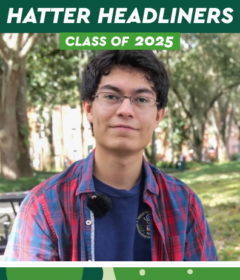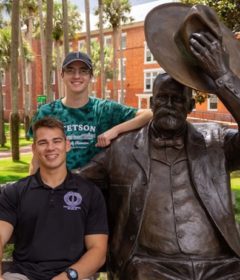Holocaust Lecture Sheds Light on Third Reich’s ‘Other Victims’
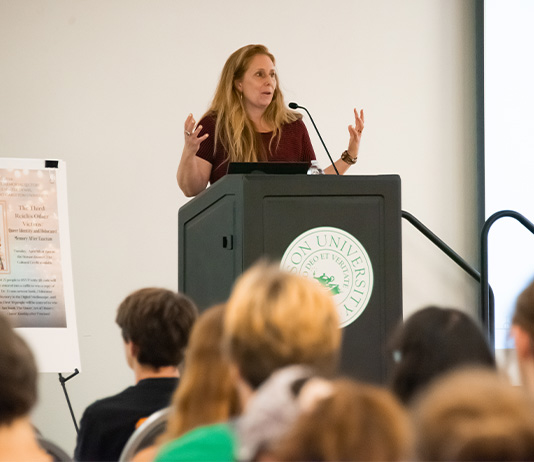
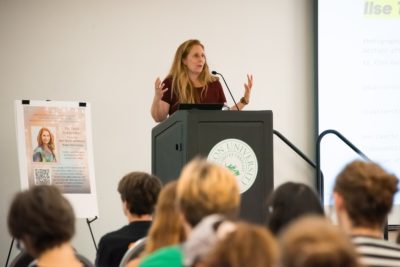
This year’s edition of Stetson’s Holocaust Memorial Lecture Series promised an opportunity for reflection, education and understanding of the broader spectrum of Holocaust victims, as well as the ongoing challenges in memorializing their experiences — specifically the LGBTQ community.
The lecture (video here) turned out as advertised, with Jennifer Evans, PhD, professor of History at Carleton University, presenting “The Third Reich’s Other Victims: Queer Identity and Holocaust Memory After Fascism” with both passion and deep knowledge.
Evans’ two most recent books, “The Queer Art of History: Queer Kinship After Fascism” (Duke University Press) and “Holocaust Memory in the Digital Age” (Stanford University Press) demonstrate cutting-edge knowledge about the complexities of historical memory and identity that date back 70-plus years ago.
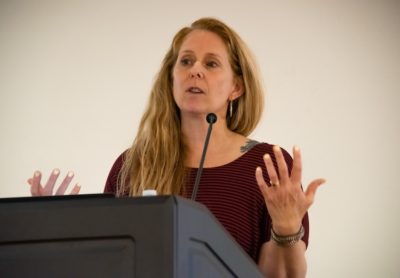
On Tuesday, April 9, and the following morning, Evans drew on her vast reservoir of primary scholarly research and interdisciplinary theoretical approach to examine the digital age’s impact on historical narratives.
At the outset of the lecture, Evans asked attendees at the Warren and Barbara Carr Stetson Room (as well as virtual attendees) to think about “how this history is represented for a national and also for an international audience, where we still find ourselves in some places, maybe more than others, wrestling with the fundamental question of how to do right by the victims of existential violence and fascism.”
One of Evans’ initial questions was “Does the memorial in Berlin [Berlin Memorial to Homosexuals Persecuted by the Nazis] represent the history or the memory of persecution, and how well does it do this?” Another question was “How does it fit into the larger memory of the Holocaust?”
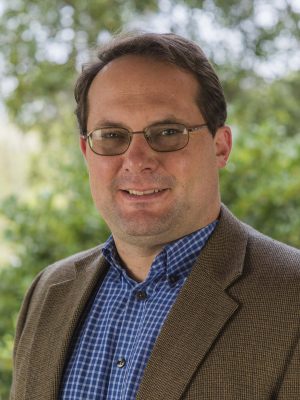
During the evening and the following day, those questions and others sparked the type of discussions that have become the hallmark of the Holocaust Memorial Lecture Series. The series began in 2008 under the direction of Professor Emeritus Grady Ballenger, PhD, who was dean of the College of Arts and Sciences at the time.
Eric Kurlander, PhD, Stetson’s William R. Kenan Jr. Professor of History and director of Jewish Studies — himself an author/expert on Nazi Germany — described Evans’ presentation as exemplary.
“I think the lecture exemplified our goals in this series, which is to make cutting-edge research on the Holocaust across disciplines — history, political science, cultural studies, literature, film — accessible to a broad audience. In this way, people can think about the lessons and legacies of that event,” Kurlander said.
-Michael Candelaria

